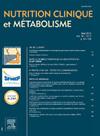L’essentiel du PNDS « Obésités de causes rares »
IF 0.5
4区 医学
Q4 ENDOCRINOLOGY & METABOLISM
引用次数: 0
Abstract
Rare genetic obesities are related to a neuroendocrine disorder linked to a dysfunction of the energy balance at the hypothalamic level, i.e eating behaviour and energy expenditure. More than sixty genes playing a key role in the leptin/melanocortin pathway contribute to these rare forms of obesity. The National Program for Diagnosis and Care Program (French PNDS) for Obesity of Rare Causes, available on the website of Haute Autorité de Santé, establishes recommendations for assessment and management at all ages. Eating disorders and complications related to early and severe obesity are very often associated with neuropsychological and behavioral disorders, leading to complex clinical situations. These conditions render the clinical management particularly challenging. Patients’ early genetic diagnosis is critical to allow specialized, multidisciplinary and coordinated care, with a necessary interaction between the health and social sectors and families. It also allows for personalized medicine by providing access to new drug therapies and informed discussion of bariatric surgery by improving the analysis of the benefit/risk balance. In this respect, these rare forms of obesity are a model of care for more common obesity in very vulnerable populations with disabilities, such as people with NDD (neurodevelopmental disorders) for whom the prevalence of obesity and its complications is higher than in the general population. The prevention of worsening weight gain is then based on the control of the person’s environment with a limitation of access to food and the establishment of a reassuring daily eating environment to limit impulsivity as well as the practice of an adapted, sustained and supervised physical activity. All this requires an efficient and adapted coordination of the care pathway close to the person and throughout his life.
© 2023 Société francophone nutrition clinique et métabolisme (SFNCM).
Published by Elsevier Masson SAS. All rights reserved.
NDS的核心是“罕见原因肥胖”
罕见的遗传性肥胖与神经内分泌紊乱有关,这种紊乱与下丘脑水平的能量平衡功能障碍有关,即饮食行为和能量消耗。在瘦素/黑素皮质素通路中发挥关键作用的60多个基因导致了这些罕见的肥胖形式。《罕见原因肥胖国家诊断和护理方案》(法国PNDS)可在法国高等教育机构(Haute autorit de sant)的网站上找到,该方案为所有年龄段的肥胖评估和管理提出了建议。与早期和严重肥胖相关的饮食失调和并发症通常与神经心理和行为障碍有关,导致复杂的临床情况。这些情况使得临床管理特别具有挑战性。患者的早期遗传诊断对于实现专业、多学科和协调的护理至关重要,卫生和社会部门以及家庭之间必须相互作用。它还通过提供新的药物疗法和通过改进对收益/风险平衡的分析来讨论减肥手术的知情讨论,从而允许个性化医疗。在这方面,这些罕见的肥胖形式是非常脆弱的残疾人群中更常见的肥胖的护理模式,例如患有NDD(神经发育障碍)的人,他们的肥胖及其并发症的患病率高于一般人群。因此,预防体重增加恶化的基础是控制个人的环境,限制食物的获取,建立一个令人放心的日常饮食环境,以限制冲动,以及进行适应的、持续的和有监督的身体活动。所有这一切都需要一个有效的和适应协调的护理途径接近的人,并在他的生活。©2023法国社会组织(SFNCM)。Elsevier Masson SAS出版。版权所有。
本文章由计算机程序翻译,如有差异,请以英文原文为准。
求助全文
约1分钟内获得全文
求助全文
来源期刊

Nutrition Clinique et Metabolisme
医学-内分泌学与代谢
CiteScore
0.80
自引率
16.70%
发文量
216
审稿时长
78 days
期刊介绍:
Nutrition Clinique et Métabolisme is the journal of the French-speaking Society of Enteral and Parenteral Nutrition. Associating clinicians, biologists, pharmacists, and fundamentalists, the articles presented in the journal concern man and animals, and deal with organs and cells. The goal is a better understanding of the effects of artificial nutrition and human metabolism. Original articles, general reviews, update articles, technical notes and communications are published, as well as editorials and case reports.
 求助内容:
求助内容: 应助结果提醒方式:
应助结果提醒方式:


